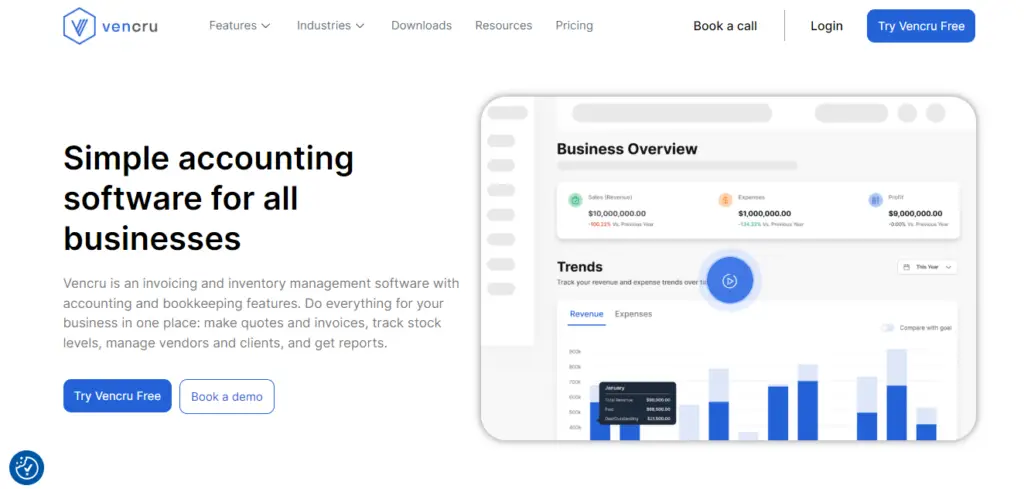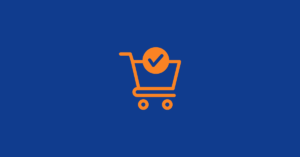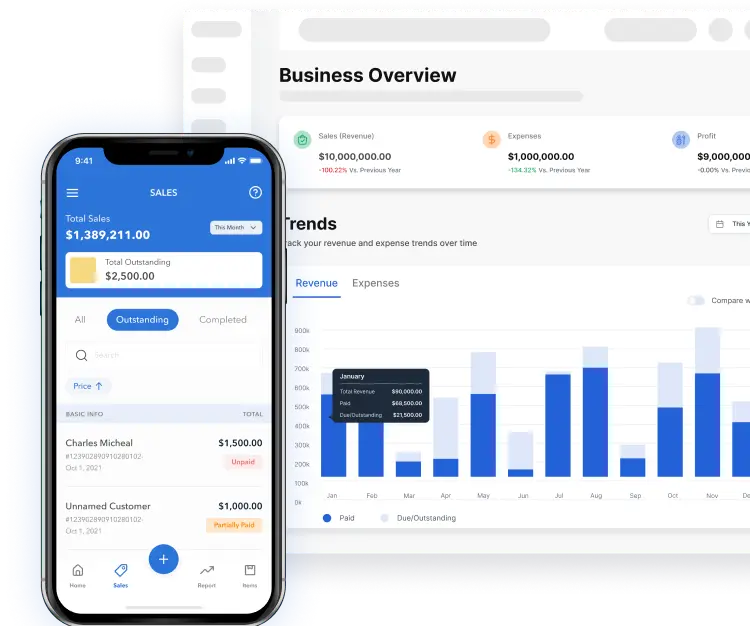Keeping track of every detail of your inventory as a wholesale business is demanding. Wholesalers need to keep track of their inventory to succeed. As their business grows and demand rises, it’s important to have a system to manage inventory effectively. In this guide, we’ll discuss inventory management software for wholesale and all you need to know to get started.
- What is Wholesale Inventory Management Software?
- What Features Do the Best Inventory Management Software for Wholesale Include?
- 5 Best inventory management software for wholesale business
- The Best Inventory Management Software for Wholesale
What is Wholesale Inventory Management Software?
Wholesale inventory management software is a tool designed to optimize the tracking and control of inventory for wholesale businesses. It is made for wholesale businesses to handle big amounts, manage bulk orders, and make order fulfillment easier and more efficient.
What Features do the Best Wholesale Distribution Software have?
The best inventory management software for wholesale businesses should have various features to enhance efficiency and accuracy. Key features include
Real-Time Inventory Tracking:
Staying informed about stock levels in real-time is crucial to preventing stockouts and ensuring timely replenishment. This feature provides a live snapshot of your inventory, empowering you to promptly make informed decisions and meet customer demands.
Bulk Order Management:
Wholesale operations demand efficient handling and processing of large orders. The best wholesale distribution software helps create orders quickly, track them, generate packing slips, and update customers on shipment status. This makes it easy for your business to handle big orders.
Barcode Scanning:
Barcode scanning system helps manage stock efficiently by speeding up tasks like counting, recording sales, and fulfilling orders accurately.
Client Management:
Wholesalers benefit from systems that allow them to manage and track customer transactions all in one place, monitor outstanding invoices, and build strong relationships with clients.
Vendor Management:
The software should facilitate the ability to manage relationships with suppliers by allowing wholesalers to manage all vendor information in one centralized location, create purchase orders, and track vendor bills to maintain efficient supply chains.
Integration Capabilities:
Seamless integration with other business tools, such as accounting software and e-commerce platforms, is a game-changer. This ensures that your inventory management is part of a unified system, reducing manual data entry and enhancing overall operational efficiency.
Reporting:
Robust reporting features are essential for wholesalers to make informed decisions regarding sales, expenses, and overall business performance. The software should offer insights via customizable reports, including client statements and sales by customer reports, which outline customers’ transactions over a specified period aiding in tracking debtors and unpaid invoices; ageing reports, facilitating the monitoring of unpaid bills and their duration; and income statements, crucial for evaluating business profitability.
5 Best inventory management software for wholesale business
- Vencru
- Quickbooks
- Ordoro
- Zoho Inventory
- Xero
Vencru – Simple inventory management and accounting software

Want to keep inventory management simple, comprehensive, and efficient? Vencru’s simple all-in-one inventory management, invoicing, and accounting software meets your needs. It includes robust features such as real-time inventory tracking, accounting, order fulfillment tracking, integration with e-commerce platforms, invoicing, barcode scanning, vendor management, client management, etc. Vencru is also very affordable. It is available on the Web and Mobile.
Pros:
- Vencru’s user-friendly interface is easy to navigate for users without prior accounting or software experience
- It is comprehensive and affordable, making it an ideal software for businesses at any level.
- Enjoy an all-in-one solution for inventory management, invoicing, and robust accounting
Cons:
- Limited e-commerce integration options compared to alternatives (Shopify integration available)
Pricing:
Vencru offers these plans with a 14-day trial period
- Free
- Starter – $6 per month
- Growth – $30 per month
- Enterprise – $50 per month
QuickBooks
Quickbooks is a cloud-based accounting software for businesses with inventory management, sales reporting, and accounting features. Its’ inventory management feature covers stock-level monitoring and reporting, inventory accounting, and multi-channel sales tracking
Pros:
- Comprehensive inventory management with robust accounting
- Quickbooks offer integration with e-commerce platforms
Cons:
- Quickbooks tends to be expensive for businesses starting with a tight budget
- It has a steep learning curve for users new to inventory management software
- Quickbooks lacks order fulfillment tracking and barcode scanning
Pricing:
Quickbooks offers these plans with a 30-day trial period:
- Simple Start – $30 per month
- Essentials – $60 per month
- Plus – $90 per month
- Advanced – $200 per month
Ordoro
Ordoro is a centralized e-commerce inventory management software for businesses tracking sales and order fulfilment through multiple channels. It covers order and shipping management, inventory management and drop shipping management.
Pros:
- Integrates with multiple e-commerce platforms
- Offers discounted rates to users to save on shipping costs.
Cons:
- Requires integration with accounting software to create reports available only on the most expensive plan
- Ordoro’s prices tend to be high for small businesses
Pricing:
Ordoro offers three plans with a trial period:
- Essentials – Free
- Advanced – $59 per month
- Premium- $149 per month
Zoho Inventory
Zoho Inventory is an inventory management system for businesses offering integration with e-commerce platforms, sales tracking, vendor and client management, barcode scanning, order tracking, and reporting. It offers warehouse management and integrates with other Zoho Suite programs.
Pros:
- Zoho inventory offers warehouse management for multiple locations as well as e-commerce integrations
- It is easy to use for businesses without previous inventory management software experience
Cons:
- Zoho inventory has limited e-commerce integrations compared to alternatives
- It offers limited customization to users
Pricing
Zoho Inventory offers these plans and a trial period:
- Free
- Standard – $39 per month
- Professional – $99 per month
- Premium – $159 per month
- Enterprise – $299 per month
Xero
Xero is a cloud-based software offering businesses inventory management, sales reporting, business reporting and accounting in one place. It lets users track inventory performance, automatically manage stock level and stock value as well as generate accounting reports on business performance.
Pros
- Xero offers more functions than inventory management. This includes business reporting and accounting as well as integration with the payroll system
- It integrates with e-commerce platforms for multi-channel sales tracking
Cons:
- Xero is not very user-friendly and tends to be non-intuitive for users new to inventory management software.
- Xero tends to be expensive for small businesses with the lowest plan offering very limited features like 5 vendor bills per month.
Pricing:
Xero offers three plans with a trial period of 30 days
- Early – $15 per month
- Growing – $42 per month
- Established – $78 per month
The Best Inventory Management Software for Wholesale Business
Effective inventory management is a key factor in the success of your wholesale business. Experience ease, comprehensive inventory management, and robust business accounting on Vencru’s all-in-one platform.
Book a demo today or sign up to experience seamless inventory management for your wholesale business growth.






